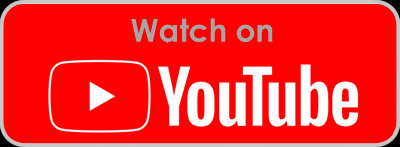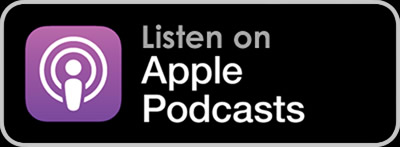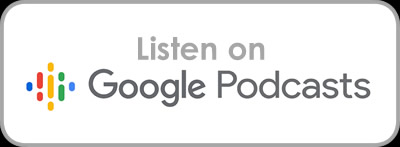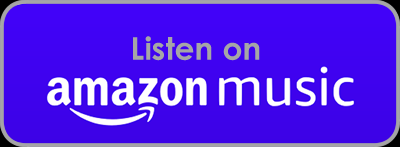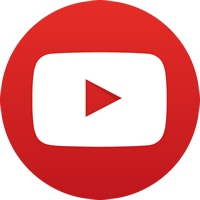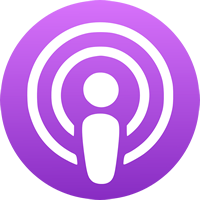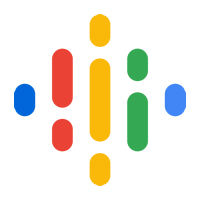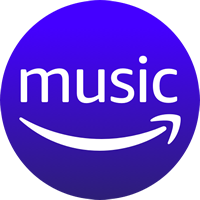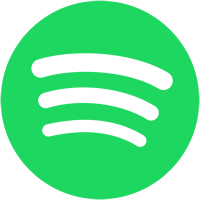Have you built a business that keeps you busy busy busy? Do you struggle to initiate any new digital marketing activities, simply because you’re snowed under with whatever you’re currently doing?
In episode 239 of Digital Marketing Radio we help you to establish clear business systems for you and your team, as your company scales, so that you never have to say ‘no’ to the next business or marketing opportunity.
Joining me to discuss that is a lady who has the systems, knowledge and experience to optimize ad campaigns, generate new leads, and modernise your marketing strategy. She’s a Facebook and Instagram Ads expert, a marketing coach and consultant – and the CEO of It Media. Welcome to DMR – Ashley Monk.
Key questions covered in this episode:
As a marketer it’s easy to get excited by marketing technology and by trying a new channel – how do you persuade someone to just become more efficient at what they’re currently doing instead of trying something new?
What are some examples of quick wins that a marketer can make by establishing clear systems?
How do you decide what to systemize?
How do you start establishing systems?
How do you decide what part of your role to systemize and potentially outsource?
What if you currently manage a team and you already have systems in place – how do you decide if what you’re currently doing is as good as it could be?
How do you persuade a team member to follow your system if they tend to do things their own way?
Audio recording:
Full transcript:
Bot 0:00
Digital Marketing Radio Episode 239 How to establish clear business systems for your team as your company scales
Digital Marketing Radio with David.
Hi, I’m David Bain and this is Digital Marketing Radio with a show for in-house agency and entrepreneurial marketers, you want to stay on top of the latest tools, tactics and trends shared by today’s modern marketing masters. Have you built a business that keeps you busy, busy busy? Do you struggle to initiate any new digital marketing activities simply because you’re snowed under by whatever you’re doing? And this is Episode 239 of Digital Marketing Radio. We help you to establish clear business systems for you and your team as your company scales so that you never have to say no to the next business or marketing opportunity. Joining me to discuss that is a lady who has the systems knowledge and experience to optimise ad campaigns, generate new leads and modernise your marketing strategy. She is a Facebook and Instagram experts and a marketing coach and a consultant and the CEO of it media. Welcome to DMR. Ashley Monk.
Ashley Monk 1:08
Thank you, David. So excited and honoured to be here. I’m so so thrilled for this conversation as well. I think it’s one that a lot of agency owners need to be having as well as other entrepreneurs as they scale.
Bot 1:19
Great. Okay, we’re recording this live on LinkedIn, and as well as YouTube and other places and Sandeep is already saying, Yes, I’m a data researcher here. Thanks. So good stuff are already getting some people keen to see what you’re going to be sharing today, Ashley? So what you can find off Ashley over it, I will just say first, buy it media.com. That’s both b y it media.com. So I just want to actually ask you first, Ashley, as a marketer, I find this it’s easy to get excited by marketing technology and trying a new marketing channel. How would you persuade someone like me not to actually try something new all the time, actually to focus on what I’m currently doing, and become more efficient at it instead of trying something new?
Ashley Monk 2:00
Oh, it’s so hard. David. And I have the same tendency to I think all of us as marketers, we desire to solve problems, we sucked in and we have shiny, I call it shiny software syndrome, instead of shiny object syndrome. Because we have this tendency to get engrossed in the next software, the next big thing. And it’s part of what makes us successful too, as entrepreneurs as agency owners, that drive and that hunger to thirst after those software is a huge factor in what allows us to be innovative, it allows us to continue to evolve as new changes and tactics emerge. However, the the issue and the challenge becomes if we’re so quickly hopping to the next thing. And not everybody, especially as we scale a company and we bring on team members is able to adapt as quickly as we are right? entrepreneurs are adaptable, they’re moldable. But as you grow your team, a lot of those people are going to have different characteristics, different strengths. And it can be very, very hard for them to adapt. And so when it comes to trying and being tempted to go to the next big thing, my recommendation and what I’ve had to do to rein myself in for having this next tendency, is really trying to look at the gaps in your business before you jump to that. So I even have a folder in my project management tool that we’ll talk about, I’m sure in a little bit that is designated to new software and new things that I would like to try. But when we do that the key is phasing it out. So how would I persuade you, my recommendation would be before you jump to any new tool, try to go ahead and look at what problem you would want that tool to solve. Before you make the switch. If it’s a legitimate issue within your company that’s impeding traffic flow that’s impeding your results that’s impeding your ability to deliver for clients, then yes, it may be time to go ahead and explore something different and to look into resources. But when it comes to switching software for the sake of switching software, that’s when it’s time to maybe hold down the brain and create a running checklist of things that you may want to explore later, but probably aren’t as urgent as the bugging you itching may lead them to be
Bot 4:15
that sounds very logical. And I really liked your advice about allocating maybe time each week to try out new things. That way, you can perhaps have that itch at that certain point of the week and naked, not get too frustrated not being able to actually try new things, but you’re doing it for a reason. You’re doing it strategically.
Ashley Monk 4:32
Absolutely.
Bot 4:33
What are some examples of quick wins that a marketer can tend to achieve by establishing clear systems instead of doing things Higgledy Piggledy, I would call it?
Ashley Monk 4:44
Yes, I would say, oh, there are so many. It’s hard to give just one right but I would say the biggest, I guess the quickest win would be allowing you to hit milestones and to see measurable success as marketers what makes us successful for our clients. Until Results are even getting our own results for our company if you’re in a different industry. And that success comes from our adaptability in our, our ability to assess trends and to react. And so when you have systems to be able to track those things, you’re going from being reactive and your marketing efforts to being proactive, you’ve got a way to measure your success, you have a way to be able to streamline and to kind of see those things. So I’d say, first and foremost, having those systems in place allows you to see the momentum that you’re actually making, instead of just feeling like you’re in a reactive space drowning and jumping from Dallas to jask. That would be the first quick win, I’ve got plenty more.
Bot 5:42
Okay, well, maybe revisit some more just in a second. I’m imagining things from the perspective of a marketer who’s just not systematising or systemising. I actually had a look on Google recently. Is it systematising? Or is it systemising? And apparently, board ways of saying is correct. So that’s all right. Good, yeah. So how do you actually establish what to systemize initially, to give you the best, most effective impact from doing so
Ashley Monk 6:11
I’ll give you the advice, that coach just continues to give me that’s been the most helpful, and it’s you systemize, when you have a new problem to solve. So I all unpack that a little bit more, in the sense that as your business scales as your company continues to grow, I’ll use the agency model as an example. So as you take on more and more clients, your systems will break, the more clients that you have coming on what got you here, that’s the expression I believe, is what got you here won’t get you there. And so the systems that you have to serve 10 or 15 clients, probably will not be the same systems that will allow you to serve 30 clients, 50 clients, right, there will be new levels of automation, there will just be more things that are required. And so when it comes down to trying to kind of stay in the lane and trying to figure out how to implement these, you want to be thinking you don’t want to think too far ahead and create a bunch of systems and processes for things that don’t exist yet. Right, which is the tendency, I think some marketers just go, and it’s like, oh, well just create stuff for everything well, you want to be able to identify, I’ll give you a practical example that we’re facing right now, within our internal company. We’ve on boarded, significantly more Facebook advertising clients than we have in the past. And so this month, in particular, it used to be that we could track on our project management tool, all of their campaigns separately and have our media buyer be able to do that separately, what we’re realising now with the amount of clients coming in, it’s very inefficient, and we get task fatigue for that person to switch between task to task. And so that’s a legitimate problem, because the more clients that come on those, what the few seconds or the few minutes that it took to switch back between, I don’t know, 20 clients, right is different than switching back and forth between 50. And so that’s an indicator that, okay, there’s time being wasted, this person is working significantly more than they need to, let’s see how much of this we can automate. Or if we can create a new infrastructure to make this more efficient. So that’s kind of the point when things start to break, or you’re starting to notice maybe you’re spending more time on something before you make a new hire, and bring somebody else on, it’s important to see what you can automate. Or maybe what you can streamline because chances are, you’re just not being the most efficient as you could be with the new problems you have to solve.
Bot 8:38
Okay, so when something breaks, what’s the the approach that you need to take in order to establish the most efficient way to fix it? How do you go about maybe selecting software or systems or perhaps even additional people that that may be required in order to fix what you just broken?
Ashley Monk 8:57
Oh, I love that. And I do love I love. I love hate when things break. I obviously the process or the time that it takes right to go in and fix everything. It’s like, Oh, my goodness. But when things break, it’s exciting because it means growth is happening. It’s just that indicator that okay, growth is happening. Therefore, we need to nip this immediately so that it doesn’t the problem doesn’t perpetuate. So when it comes to being able to really figure out how do we how do we know when to do this. I’m a huge firm believer of reverse engineering everything that you do. So what I mean by that is, let’s say specifically with your campaigns, right, I’m just going to go back I always gravitate to the Facebook ad examples. But let’s say that you’re having an issue tracking certain key performance indicators. What you would want to do and maybe you’re having difficulty getting them to your clients on a timely manner and managing reporting, automation, all of those things. You want to just go ahead I recommend doing a big brain dump or even a mind map and just getting everything all the problems out of your So that you can have a clear mind, then you want to work backwards. So if we’re taking client reporting and client communication, for instance, you want to work backwards with kind of what the end goal is, or the expectation that you and the client want to have. And then we work backwards from there. So we tend to overcomplicate these things. And the biggest issue that I see a lot of people making, typically, is creating all these complex systems that either only work for one person, or that are unnecessary, that great you created this beautiful system, but it’s not necessary, it doesn’t actually solve a problem. So that’s why working backwards and reverse engineering it. So if it’s a reporting issue, right, you want to get clear on Okay, what was that person’s expectation? What do I ultimately want to solve? And then we work backwards step by step incrementally, to be able to create the overall framework that gets us there.
Bot 10:54
I love how you actually said start off with a client in mind, I’m not sure a lot of people would do that, I think a lot of people would just try and build a system that’s as efficient as possible for them, but not necessarily with the client in mind.
Ashley Monk 11:06
Yeah. And I think that’s another point too, that I think is very, very helpful to consider as an entrepreneur. And as you’re starting your company, all of your systems tend to revolve around you, right? It’s easier, you’re creating workflows, and you’re creating things that work for you. But as your company evolves over time, and you bring on different team members, it’s really important to recognise that not everyone is going to think, perceive or act the same way as you. And same with the client. And so you want to think about the client. But you also want to think about the other personalities on your team that maybe would be executing this role. And so I know for me, my husband works with me full time, he’s our media buyer, I went through and we needed to evolve the way that we were tracking some of our Facebook ad systems. Today, I did just that I looked at what the client feedback was just about campaign, I noticed some inefficiencies. And then I worked backwards in a time block this morning to try to see the best way to solve it. And then I brought in my husband, who has a very different personality, and way of doing things than I do to walk through and like put somebody in through this system as an example, before I finished the entire infrastructure. So another helpful tool that I recommend is using a personality assessment, whether it be disc, whether it be Myers Briggs, enneagram Colby index, there’s so many different ones. I like this because it’s short. And it’s simple. But thinking through other people on your team and how they might their workflow might differ and helping being able to hit a visual learners task and list learners and creating systems that incorporate all of those different personalities.
Bot 12:52
Love it, love it, I almost preempted my Nesquik. Next question, because I was gonna ask if you’re managing your team, and you have someone on the team that’s actually not for who in your systems, and you just can’t persuade them to follow your systems. And they think perhaps the way that they are doing things is more efficient, or the other best way how to get someone to follow you. Is that a case of doing what you said and looking at their personality and appealing to that nature? Or do you have to sometimes amend the team system to an individual?
Ashley Monk 13:20
Oh, that’s such a good question. And it’s tough, there’s not a black or white answer. I know the culture of our company. And the leadership that I tried to provide for our whole team is I always say that, the thing to remember too, is you are the business owner, the entrepreneur, really stepping into a CEO role. As your company grows, the thing that I always tell our team is that at this point in our company, a lot of our team is in more of the day to day operations and the client execution than I am, I’m really focusing on our sales on our bottom line and our profitability a lot of those things. And so, though I was the one that started and we started our agency from the ground up with me being a side hustler to a solopreneur went through all those stages. At this point in time, as the marketing, the marketing landscape evolves, there are elements that are team being kind of boots on the ground, and the one that are executed, those things are able to accomplish better than I am. So I always tell our team in our meetings that if they want to challenge the system that’s in place, and they have a better one that by all means, I want to see what they come up with. So the esops are there for a reason. And so I will tell them continue to follow what we have in place. But in our next meeting, I would like to see what you would do better. So if you are going to improve this because we can always constantly continue to be improving, what would you do? And then I like to kind of see what they’ve come up with and then we’ll kind of meet in the middle but okay, I can see why you maybe wanted this. This can come into this system. But here’s why this policy or this procedure exists because sometimes too. I think as leaders we have this tendency we’ve We maybe think that we communicated something, but maybe we didn’t. And a lot of times team members, if they can know the why behind why something is in place, they’re going to be on board with that, they just need to understand the importance or the rationale that that’s there. But that being said, we have an open door policy to where if someone can do something better than me, I want to see it. But I just want to know how and then we’ll typically come through. The other thing that we’ll do too, is let’s say somebody is doing something, there’s a personality that maybe is efficient at one thing, but not another, we have our esops, our standard operating procedures, like broken down by role as well. So for instance, for our Facebook ad campaign. So PS, there are a lot of there are multiple team members involved, we have one phase of that process that is towards sales, and then another that’s toward operations for onboarding, then we have the creative element, that’s a different person. And then we have the media buyer. So we do have those broken up by role as well. And then sometimes we’ll have to segment and isolate a different section of the system to really nail down what that will look like for each person.
Bot 16:05
Great stuff. Okay, so that’s focusing on I guess, if one individual isn’t satisfied with the system that you’re already have in place. And he also mentioned earlier on, if something’s broken, that’s what to focus in on. However, what if something isn’t broken? What if you think everything is operating fairly smoothly? Is there ever a time that you should actually try and break something yourself? Or try and improve something even though you’re fairly happy with the system that you currently got?
Ashley Monk 16:29
That’s a really good question. Um, goodness, I’m trying to think of a case where we’ve done that I think we can constantly be improving, I know, for us, the way that we will maybe introduce new things is our operations director is always reaching out, and making sure our clients that are getting like the feedback and that they’re getting the results and the things that they want. And so anytime we see something, we try it, we try not to create problems that don’t exist, right. We don’t want to just be creating systems for the sake of creating systems, we want to create them to solve real and tangible problems. But that being said, the way that we kind of make that distinguisher, if we need to test something, or do something differently, it’s just kind of one being open, or like communicating with peers and colleagues, and just seeing the changes that are happening in the industry. Like, for instance, to give you a concrete example, and again, I’m completely speaking from my world here, in the advertising space, but with a lot of the iOS updates, for example, that are affecting Facebook and advertising. So I would say industry changes, right, if you know, from colleagues or in the press, that there’s probably a major change that’s going to come to the industry, then that’s a good time to be thinking ahead and trying new things so that you are ahead, because it’s not if it’s when that change is gonna happen. So that’s one example where I would say yes, it’s helpful to be thinking ahead. The other example would be, if you’re getting kind of when from a client, that’s something could be better, or that client maybe is tempted, I don’t know where to go elsewhere to try something. And that’s maybe another indicator that you need to be improving so that you can continue to keep up with your competitors.
Bot 18:08
Proven answer, I can throw any question as I do, actually. And you can answer it no problem at all.
Ashley Monk 18:15
Think about that one for a second. That was good.
Bot 18:17
Look, I tell you what, let’s segue to the second section of our discussions, there’s no time to think about your thoughts on the state of digital marketing today in general. So let’s start off with SECRET SOFTWARE. So actually share a lesser-known martech tool that’s bringing you a lot of value at the moment and why the tools important to you.
Ashley Monk 18:32
Oh, my goodness. So I don’t know how lesser known but I just have to continue. I am such a proponent of clickup. I love clickup. For anyone listening, and I know you’ve heard me rave about great. People. I don’t know how well known it is now or not. It wasn’t as well known a few years ago, but it’s a project management tool like Trello, Asana, or Reich. But it’s just so intuitive. I mean, I have to use I have to say it every time because I if something were to happen to the software, granted, we’ve got everything back up, it would just my heart would break because we use clickup for so many different things. It’s just so invaluable.
Bot 19:11
So blending it back to the previous part of the conversation. If you were hiring someone to be a virtual assistant for you, would it be absolutely essential for them to have prior click up experience? Or can you quite easily train them on the use of that is more important that they can actually do the job apart from use the software that you’re looking for them to use? Oh,
Ashley Monk 19:33
that’s tough because if there are VA there becomes contractor employee, right? There’s all these things going through my head, I would say when I when I looked to hire, for any role, I care more about the competency of the person and they’re into cultural fit to especially if it’s an employee coming on, that’s the most important thing to me. So I would say they don’t necessarily I don’t expect them especially with how robust clickup is and how we use it. I don’t think Back to anyone to come in and have a full understanding. But I would say the the more of the softer skills like problem solving, or intuitiveness, or ability to adapt and to adjust, those are going to be more important than using the software itself, I believe everybody can be trained. With that being said, if it’s somebody that maybe isn’t tech savvy, and they they aren’t, they don’t have that figured out kind of mentality, and they can’t kind of keep up then I would, that would be a deal breaker. So it’s less to me about the software, and more about the person’s ability. Just as we all know, as marketers, things are changing constantly. And so if you’re not adaptable, and you’re not really willing to roll with the punches, then that’s really more of a differentiator that’s going to break that experience. But I will say it is important to us, anytime we have an employee Come on, they, the first thing that we do is onboard them and click up and we want them to understand it as quickly as possible. Just because it’s the easiest way for us to organise all of all of our material for sure.
Bot 20:59
If you’ve got great systems in place, you can systemize the training in clickup. So that’s not a problem at all,
Ashley Monk 21:04
yes.
100%.
Bot 21:08
So let’s move on from something that you currently use to something you’re going to use NEXT ON THE LIST. So what’s one marketing activity or tool, the heart that you haven’t used yet, but you want to try soon?
Ashley Monk 21:17
Okay, I’m very, I might nerd out a little bit about this one, but it is hieros. So if you’re a media buyer, or you’re anybody that’s running any kind of advertising, campaign hieros is new AI, sales and revenue tracking. And so we just got off a demo with them yesterday, I was so so so incredibly impressed by them. But basically, what hieros allows you to do is they have some of the most robust and sophisticated reporting that I’ve ever seen for marketers. And so to give you kind of a very high level overview, you’re able to track the customer journey from the very, very first interaction of the sales process and be able to pull from a lot of different data points from different platforms. And so from any kind of an agency perspective, let’s say, I’m working with a client that we got them a lead through advertising, and there may be arguing that it came through organically. Well, Facebook, Google Analytics, a lot of the software that we use to track data can over or under report, as we all know, and sometimes I know, for us, a bottleneck is fact checking and making sure that things are reporting accurately. What hieros allows you to do is since they’re mapping and tracking a lot of that for you, you can see the entire lifetime value and purchase history of your clients. So let’s say we got a lead through advertising, but somebody says, Oh, no, it’s showing or Facebook showing they reported organically, we can track them from the beginning and say no, actually, this lead came through from our ads. The other cool thing that it allows you to do is I know with Facebook and Google Analytics, specifically, sometimes, particularly for media buyers, what I will notice is that there will be when you’re making changes based on reporting, sometimes you’re making changes based on flawed data. But let’s say somebody made a purchase and the cost to acquire that lead was $400, whereas other leads were maybe 15 to $20. To acquire, most media buyers would say, Oh, that’s way too high. It’s out of range. We don’t need to run that campaign. Well, hieros would allow you to go back and track all the way from the beginning to say, well, this $300 lead actually generated $24,000 in revenue from when they purchase this course or this product or this coaching. Whereas these leads only spent $1,000. It can track names email, it’s just incredibly robust. So I will hop off my soapbox, but it is definitely a tool to check out.
Bot 23:36
I’ll tell you what, when you were on your your soapbox, I still couldn’t find who exactly you’re talking about there. How’d you spell it? Is it Hi, yeah,
Ashley Monk 23:45
it’s reach y r o s. And it’s legendary tracking for Facebook ads. It is it’s pretty impressive.
Bot 23:54
Got it. Okay, ah y rs.com is their website. So I’ll make sure the link to that is in the in the show notes at Digital Marketing radio.com as well. And so let’s move on to so this is the quick response. Ryan 10 quick questions. Just 2 rules, rules here. Try not to think about the answer too much. And you’re only allowed to say the word both on one occasion so use it wisely. Are you ready?
Ashley Monk 24:17
Yeah.
Bot 24:18
Tick Tock or Twitter. Tick tock, Facebook or LinkedIn?
Ashley Monk 24:24
Facebook, I’m biassed
Bot 24:26
YouTube or podcast,
Ashley Monk 24:29
podcast,
David Bain 24:31
traffic or leads.
Ashley Monk 24:33
Leads
Bot 24:34
paid search or SEO
Ashley Monk 24:37
paid search, ads
Bot 24:39
or influencers?
Ashley Monk 24:41
ads out the answer that way right.
Bot 24:44
Google ads or Facebook ads, Facebook ads, email or chat. Chat, Mar tech stack all in one platform.
Ashley Monk 24:58
Stack has to be a stack
Bot 25:00
One to one or scale
Ashley Monk 25:02
o scale
Bot 25:05
was relatively easy for you there as well. I think the the slight pause was an email or a chat is that because you’re starting to embrace chat marketing more than email,
Ashley Monk 25:14
I had to think about that, you know, email. I, it’s so true. It’s so challenging because email I feel like has always been I don’t think it’s going anywhere. But we see, there’s so much junk and email open rates continue to go down. Certainly, I’m still a huge proponent of email marketing, and it’s so effective. But using chat, text messaging, I feel like that’s the wave of the future. And it’s less saturated, whereas email has become very oversaturated obviously existed the longest. But I feel like there is a lot more opportunity utilising platforms like many chat community Twilio and going that direction, because it also the other factor. It allows, even though you’re scaling, it allows that one to one intimate conversation. So email, you’re still you’re writing longer snippets of copy. And you’re even though it’s you’re trying to write specifically to one person, it’s going out to the masses, whereas there’s something about getting a notification on chat, or text that feels a lot more personal. But I had to think about it because I do I still am a huge advocate and proponent of email marketing as well.
Bot 26:19
Yeah, it’s interesting to see how it will evolve. I did a bit of research on email marketing, the history of email marketing, for my conversation with Theresa Heath wearing for the previous episode. And apparently, the first email mass email campaign was sent more than 40 years ago, before the start of the World Wide Web. So it has been along for quite a while. And it’ll be interesting to see if chat marketing still exists in 40 years time, or if, as a medium, people just gonna get fed up of marketers moving on there, and perhaps something else will exist that doesn’t even exist at the moment.
Ashley Monk 26:55
No, I
see it being some some way related to AI. I think AI is really becoming the future of marketing. And a lot of ways I know, we’re testing it out in a lot of different areas with a high rose. And then there’s another copywriting tool called Jarvis, there are a lot of really fascinating AI tools. So I think that’s probably where we’re going. It’s just how do we leverage that? And will AI or how soon really will AI be as intuitive to you and I having a conversation? I think it could very well go that way.
Bot 27:25
Will there be any need for human being copywriters in 10 years time?
Ashley Monk 27:31
David, it’s hard to say I wish when we started using Jarvis man, it’s and that’s what it is. That would be our second pick. If I could pick a second tool that we’re starting to explore. It’s basically copywriting AI and you can feed different content. There’s still a lot of human touches that are needed to kind of factor in you can pick a tone of voice, but you still have to factor in a lot of details. But in 10 years time just seeing where everything has come. Honestly, I don’t know, I think there may still be that need maybe for that management piece to make sure everything but with the way that our technology has evolved. Truly, David, it’s tough to say, I don’t know. I don’t know what that will look like, which is crazy to even be saying that.
Bot 28:16
Okay, so Jarvis is from company codes. conversation.ai. That’s a website, right? Yes, absolutely. See that there? Okay, check that out there. You’re always throwing up tools that I haven’t heard of before. So
Ashley Monk 28:27
I know I have to be careful. You got to be careful when we talk. I know I have to be careful too. It’s been when we only test one tool at a time. That’s the rule.
Bot 28:35
I have to be careful because I try and find them while we’re having a conversation. So that makes it definitely more difficult if it’s something that’s spelt in a weird way. Because when something right, he pronounced Hi, Ross, or Hi, Rose. Yeah, there would be 101 ways of spelling that surely.
Ashley Monk 28:52
Oh, absolutely. It’s all these different techie names. 100%.
Bot 28:56
So the $10,000 question. The next question is, if I was to give you $10,000, you had to spend over the next few days in a single thing to grow your business? What would you spend it on? And how would you measure success?
Ashley Monk 29:07
So simple for me to answer it would be coaching. The reason being, every time I know a lot of people like oh my gosh, another coaching programme, but what I know to be true is a CEO and just the leader of my company, that the more I invest in myself, I am the cap that is able to lead my team and anytime I hit a plateau or that I’m not able to accomplish something that affects everybody else, because they’ll never work or outwork. Me, right. And so for me, knowing making that investment back and myself back in my company, and we still I continue to invest in coaching, it would probably just be in a more specific area, or maybe not coaching some form of education for my people and team. That would be where that money would be spent. As far as measuring success. Obviously, it’s a little bit harder to measure an investment like coaching, right, but when I think about profitability centres within our agency, our people is As we grow and scale, or what make is profitable, our team and the people working behind the scenes are what allow us to be profitable. And so if I can invest in their skills or training and get them to be able to outperform where they’re at now, that immediately affects our efficiency and profitability. And so how do we measure it, I would be depending on the training or education that we would invest that $10,000. And I would set KPIs to see, here’s where we’re at now. And here’s where we need to be in order to make this investment, a 4x return
Bot 30:30
on how do you identify what you’re going to coach them in? Because it could be something that you want to do in the future? It could be something that the employee is currently struggling with, that they’ve identified who makes that decision?
Ashley Monk 30:43
Oh, this is tough, I would say it’s gonna vary, it’s gonna vary where the business is at. I know, for us right now, messaging is probably the biggest growth area, right? So I would say, overall, it’s important, we’ve got those slps, we’ve got those, we’ve got KPIs to track. And so for me, since we track and measure absolutely everything, making that decision, whether it be now or a few months from now, is going to be based off the KPIs and based off the gaps. And so looking at those KPIs and where things could be improved, that’s going to give the maximum return. That’s where I would spend that investment. So right now, it is messaging because that is really the area and the differentiator. So that’s where we’re pooling all of our all of our energy right now. It’s messaging about that media to really continue to just provide that seamless process.
Bot 31:30
Great stuff. Yeah, you don’t need any softball questions. Horrible questions is the way to go with you. That’s fine. I love it. I
Ashley Monk 31:36
did I did prep. I did. I had I was trying to think through some of these. So
Bot 31:42
Oh, well, we’re just about time towards the end. To finish off, let’s shift the focus to someone else who deserves it MAGICAL MARKETER. So who’s an upcoming marketer that you’d like to give a shout out to? What can we learn from them? And where can we find them?
Ashley Monk 31:54
Oh, my goodness, I would say right now brandy, Mel’s that is the number one person that comes to mind. She is a course creator, a coach. And then she’s also an ad strategist as well. And so she’s been someone that I’ve looked to and learn from a lot over the last several years. But notable things that I’m saying she was one of the people that introduced me to hieros, I would say just the up and coming and continuing to educate and she’s moved more from an agency or a service provider model to really helping other entrepreneurs grown that area. So she would be one to definitely follow and see what’s going on. But a great example of somebody that focuses and streamlines down and is not focused on a lot of things, but efficiency in one category.
Bot 32:39
Great, okay. And I was just trying to figure out how to spell her name, is it just brandy Williams Mills, is that
Ashley Monk 32:46
I’m trying to think it’s BR and di m o w l e s. And she actually David may not have a website. This is one of the things that I love about brandy is I believe her website is under construction. And so she grew her company to well over a million in revenue without a website. And it’s just because of those key things like focusing on processes focusing on what really moves the needle, instead of trying to do all the different things. So definitely something to watch.
Bot 33:16
Super. Yeah, in fact, I think a finder, it’s a TR A n di mo w le s. And it just says her websites for a domain name. Her name is her domain domain name. And it just says new new site coming soon. So,
Ashley Monk 33:31
Bro, I love it.
Bot 33:33
This was obviously episode 239 Digital Marketing Radio, you shared some incredible, wonderful tips as part of the conversation. We’re talking about business system it systemization says to begin with systemising systemising. I don’t know which one to use. as your business grows. Why do I confuse myself like that? We also mentioned what got you here won’t get you there. Start with a client in mind as well. So lots of wonderful advice in that initial section of the discussion your SECRET SOFTWARE words clickup. NEXT ON THE LIST, hi, Ross, HY r or s and you’ve talked about conversion or AI Jarvis as well your margin, MAGICAL MARKETER, Brandy moles. And everything of course that you mentioned the show notes will in the show. And then the discussion today will be in the show notes at Digital Marketing radio.com. And on the YouTube channel, just search Digital Marketing Radio on YouTube. For that one there actually was the best social platform for someone to follow you and say hi,
Ashley Monk 34:31
oh goodness, Facebook or LinkedIn, Facebook or LinkedIn for sure. Yes, I live on I guess I live on all of them. But those are the top two
Bot 34:39
absolutely superb. Well, I’ll make sure I include links to your site by its media, and also your social profiles there in the shownotes there as well. Thank you so much for coming on today. Great episodes. I’ll just say that. I’ve been your host David Bain. You can also find me producing podcasts for B2B brands over at Casting cred.com wherever you Watching wherever you’re listening, please try and leave a little bit of feedback add to the conversation yourself as well certainly check that out there. But until we meet again, stay hungry, stay foolish and stay subscribed. Aloha
radio.com radio.com Digital Marketing Radio, Digital Marketing Radio, Digital Marketing Radio


